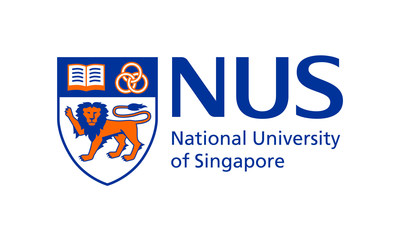Subjects: SVY, TRI
NUS scientists discover a novel way of activating muscle cells' natural defences against cancer using magnetic pulses
This drug-free, non-invasive approach could open the doors for new developments in cancer therapy and cancer biomarker discovery
SINGAPORE, May 21, 2024 /PRNewswire/ -- A team of researchers led by Associate Professor Alfredo Franco-Obregón from the NUS Institute for Health Innovation & Technology (iHealthtech) has unveiled a novel approach to stimulate muscle, by way of using brief and mild pulsed electromagnetic field exposure, to produce and release proteins possessing anticancer properties. These soluble chemical molecules can then be carried in the blood stream to all regions of the body for system-wide protection against cancer.
Exercise is known to have protective effects against cancer, including reducing the risk of developing breast, prostate, and colon cancers, as well as improving the survival rate of patients with cancer. However, given the debilitating effects of cancer progression and treatment-related side effects, patients with cancer may not be able to exercise and benefit from muscle's anticancer effects.
"The BICEPS lab's method of stimulating muscle cells uses a form of magnetic therapy that exhibits key commonalities with exercise. This latest study demonstrated that our non-invasive method of muscle stimulation mobilises a similar anticancer defence as exercise, bringing us a step closer towards the development of drug-free therapeutics and the discovery of cancer-related biomarkers to help patients with cancer benefit from exercise-stimulated anticancer agents while not being able to exercise," said Assoc Prof Franco-Obregón.
The NUS (National University of Singapore) team published the details of this new drug-free and non-invasive approach in Cells on 5 March 2024.
Anticancer properties of magnetically-stimulated muscle cells
In a previous study, Assoc Prof Franco-Obregón and his team demonstrated that briefly exposing isolated muscle cells to 10 minutes of low-energy magnetic fields was capable of boosting muscle development by stimulating their release of regenerative and rejuvenating proteins into their surroundings. In the body, these same muscle factors are also known to be protective against common diseases such as diabetes and cancer.
In the new study, the team explicitly investigated whether the same magnetic stimulation protocol could encourage the production and release of anticancer agents from the intact muscles in preclinical models and to identify and validate anticancer factors.
The NUS team first tested their hypothesis at the cellular level and found that muscle cells that underwent magnetic therapy could inhibit breast cancer cell growth, invasion and migration, which are hallmarks of cancer progression. In addition, magnetically-stimulated muscle cells were found to be able to shrink micro-tumours as well as reduce their blood vessel formation.
Next, the researchers conducted preclinical studies to validate their tissue culture findings. They demonstrated that 10-minute exposure to magnetic therapy once a week for eight weeks was sufficient to evoke similar anticancer properties - such as preventing the growth, invasion and migration of breast cancer cells - as that produced by exercising twice a week for 20 minutes per session for eight weeks.
The researchers further demonstrated that a previously suspected tumour suppressor, HTRA1, was secreted from muscle cells exposed to 10 minutes of magnetic fields per week, similarly as exercising for 20 minutes twice a week. Importantly, selectively removing HTRA1 secreted by the muscle cells eliminated its anticancer potency, whereas directly applying synthetic HTRA1 to cancer cells recreated the anticancer effect of magnetic field exposure and exercise. These results demonstrate that HTRA1 is necessary and sufficient to explain the anticancer effect of muscle.
Interestingly, HTRA1 is necessary for muscle development and for the build-up of muscle's anticancer protein arsenal, which contributes to our muscle being our greatest natural defence against cancer. In this respect, the researchers showed that early exposure of isolated muscle cells (in tissue culture) to HTRA1 stimulated their development and increased their anticancer potency.
In other words, HTRA1 could adapt muscle cells outside the body to become better anticancer factor secretors even when not stimulated by the magnetic fields, essentially recapitulating exercise adaptations in the laboratory, which are normally seen in the body.
"HTRA1 released during exercise may cause muscles to adapt to be capable of secreting HTRA1 even at rest. This helps to explain why exercise makes us more resistant to cancer. To extend the analogy even further, if muscle is our anticancer pharmacy, magnetic field therapy may be an inexpensive, yet effective, prescription," said Assoc Prof Franco-Obregón.
Next steps
Following up on the promising results generated from this preclinical study, the NUS team is initiating clinical trials to assess the anticancer potential of muscle-targeted magnetic therapy in humans and to corroborate the anticancer effects of HTRA1 in humans with breast and other cancers.
The team also looks forward to conducting further studies to identify other anticancer biomarkers produced and released by muscle cells, which could serve as potential targets for the development of drugs and therapeutics to treat cancer. As muscle is a foundation of rejuvenating and disease fighting factors, this approach should prove quite fruitful.
Read more at: https://news.nus.edu.sg/muscle-cells-natural-defences-against-cancer-using-magnetic-pulses
SOURCE National University of Singapore
These press releases may also interest you
|
News published on and distributed by:




